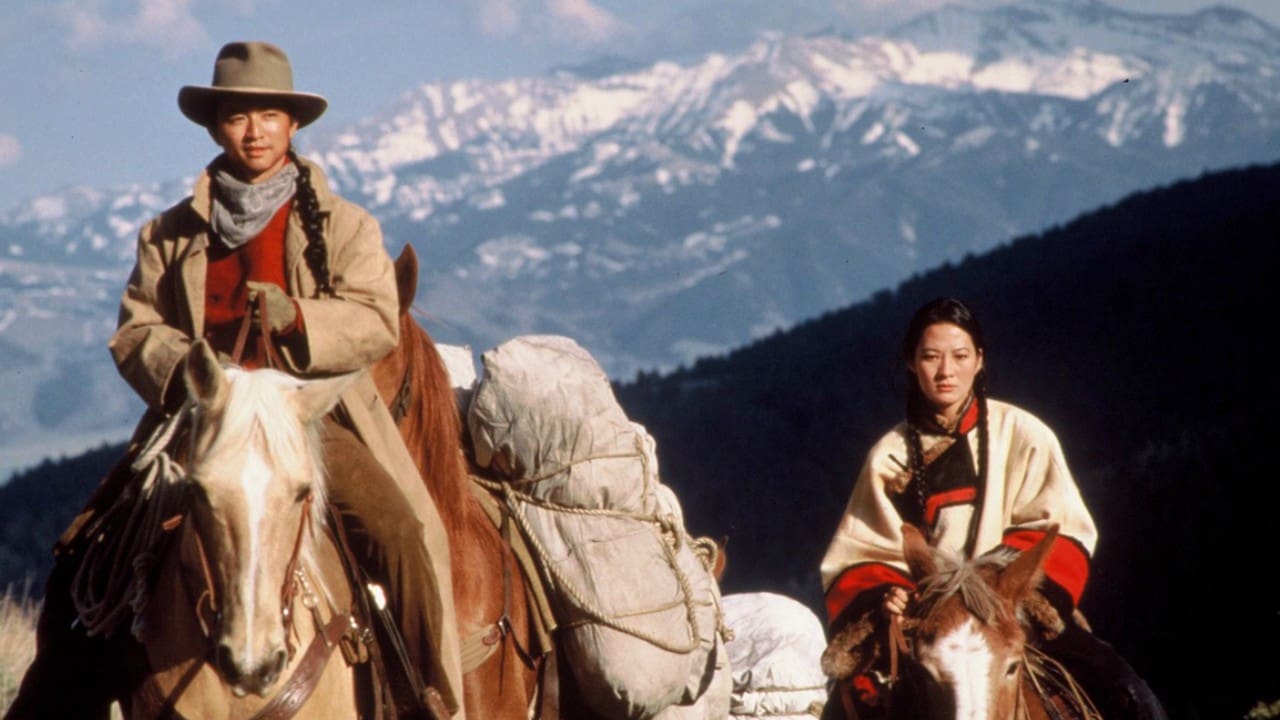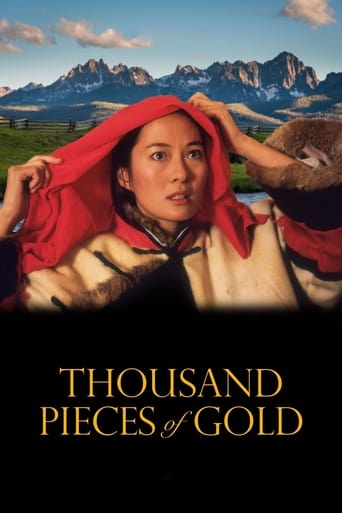Curapedi
I cannot think of one single thing that I would change about this film. The acting is incomparable, the directing deft, and the writing poignantly brilliant.
Hadrina
The movie's neither hopeful in contrived ways, nor hopeless in different contrived ways. Somehow it manages to be wonderful
Ella-May O'Brien
Each character in this movie — down to the smallest one — is an individual rather than a type, prone to spontaneous changes of mood and sometimes amusing outbursts of pettiness or ill humor.
Delight
Yes, absolutely, there is fun to be had, as well as many, many things to go boom, all amid an atmospheric urban jungle.
worleythom
There are no likable characters in this movie.Even the protagonist is mainly just a victim. She shows some tenacity, but we don't really get to know her enough to like her.Shows that Chinese people were scapegoated, mistreated, excluded, robbed, murdered in the 1800s.Shows a poor Chinese father selling his daughter into sex slavery.Everyone the protagonist encounters mistreats her.Not a fun movie. Its redeeming social value, if it has one, is in showing the fallout from racism and sexism.Which is perhaps unnecessary. For a downer, any day's news will do.A movie should at least have a likable character. This movie lacks one.
tallmark2
OK, I will admit upfront that I am biased about this movie. "Thousand Pieces of Gold" had its world premiere in my city in Idaho in 1991 because it was the only sizeable town with a large old movie palace near the locations where these true-life events took place (but NOT where they were filmed, which was in Montana). (Lewiston even gets a shout-out in the subtitles near the beginning of the film.) During the several weeks that this movie played, I went to see it MANY times on the BIG SCREEN; watching it on TV screens just does not do the scenery justice, though we will perhaps never see it again in theaters. The story of Polly Bemis that the movie is based on is real, though the filmmakers do take some liberties with the facts. That does not bother most of us locals. We were all thrilled to see this story brought to life on film by many fine actors, capturing the flavor of what life was like in 19th Century Idaho mining towns--especially if you were not white. Rosalind Chao's performance is exceptional, and I have been told that this was the FIRST American movie made with a Asian-American actress in the lead role. Although the film seems to come to a rather abrupt end -- as though the filmmakers ran out of money -- it is still a fantastic film that deserves more attention than it has received, and certainly should be released on DVD. Make a point to see it, or own it on VHS, if you can.
dphelan-1
I wish this fantastic film were available on DVD. I own the VHS and find it more compelling with each viewing. Rosalind Chao and Chris Cooper ( who later went on to win an Academy Award) give topnotch performances and make me believe in the power of love and redemption. Their slowly building relationship in a hostile world and its low-key but very powerful denouement is a textbook in fine acting.The historical period has been covered before but never from the point of view of a Chinese immigrant woman. Lalu's courage, strength and intelligence as well as her sensuous exotic beauty are inspirational. As Charlie, Cooper gives a fine portrayal of a decent if flawed man who triumphs in the end. A real classic!
tim_o_callaghan
Gritty social realist story of Chinese woman Lalu who is sold into slavery in the late 19th century, and taken to a rough mining town in the American west. There she faces a series of humiliations, rejections and triumphs before finding at least a degree of happiness with a sympathetic saloon keeper. By turns both gloomy and sentimental (not necessarily a bad thing) issues of racism and feminism are very much to the fore.

